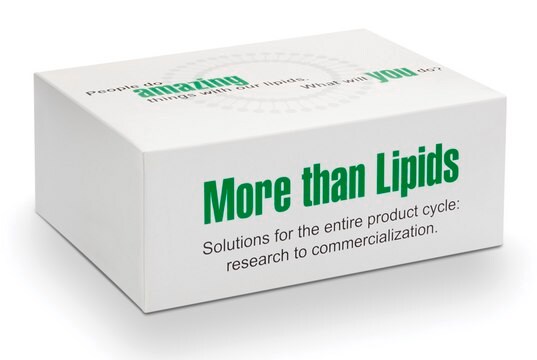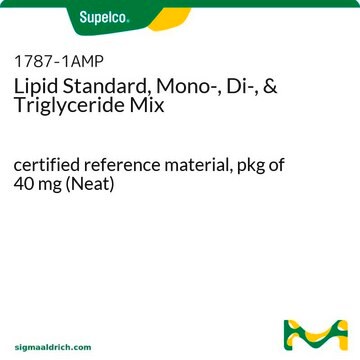857223P
Avanti
C16 LPA
1-O-hexadecyl-2-hydroxy-sn-glycero-3-phosphate (ammonium salt), powder
Synonym(s):
1-hexadecyl-sn-glycero-3-phosphate (ammonium salt); vPA(16:0e/0:0); 110683
About This Item
Recommended Products
Assay
>99% (LPA; may contain up to 10% of the 2-LPA isomer, TLC)
form
powder
packaging
pkg of 1 × 1 mg (857223P-1mg)
manufacturer/tradename
Avanti Research™ - A Croda Brand 857223P
lipid type
cardiolipins
phospholipids
shipped in
dry ice
storage temp.
−20°C
SMILES string
O[C@](COP([O-])(O)=O)([H])COCCCCCCCCCCCCCCCC.[NH4+]
InChI
1S/C19H41O6P.H3N/c1-2-3-4-5-6-7-8-9-10-11-12-13-14-15-16-24-17-19(20)18-25-26(21,22)23;/h19-20H,2-18H2,1H3,(H2,21,22,23);1H3/t19-;/m1./s1
InChI key
CZAOPXJWCUFSOL-FSRHSHDFSA-N
General description
Biochem/physiol Actions
Packaging
Legal Information
Storage Class Code
11 - Combustible Solids
Choose from one of the most recent versions:
Certificates of Analysis (COA)
It looks like we've run into a problem, but you can still download Certificates of Analysis from our Documents section.
If you need assistance, please contact Customer Support.
Already Own This Product?
Find documentation for the products that you have recently purchased in the Document Library.
Customers Also Viewed
Our team of scientists has experience in all areas of research including Life Science, Material Science, Chemical Synthesis, Chromatography, Analytical and many others.
Contact Technical Service









